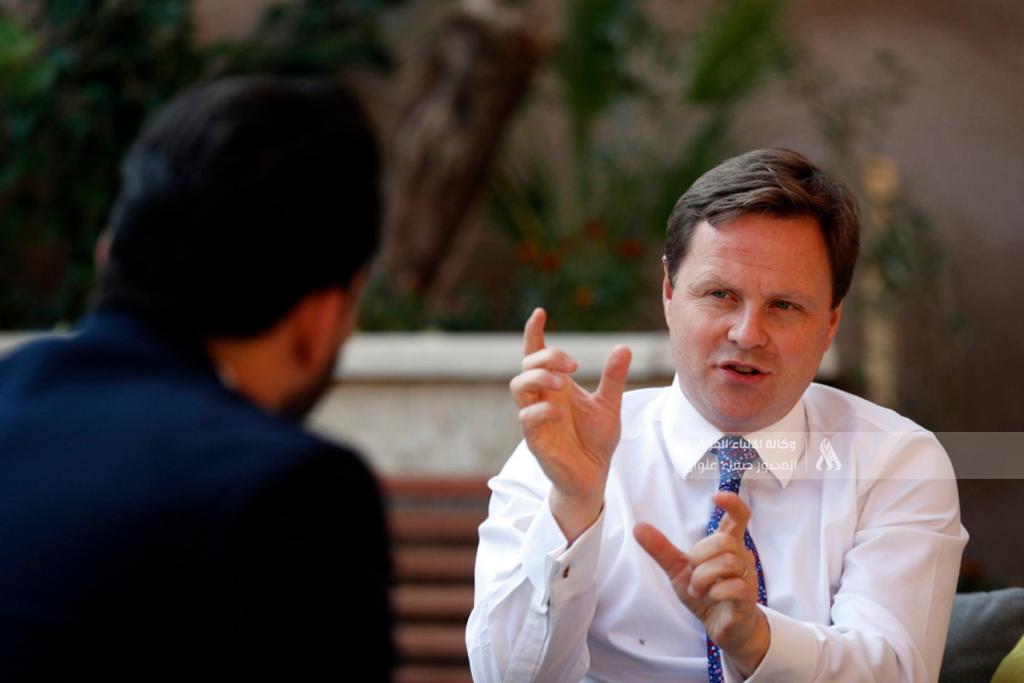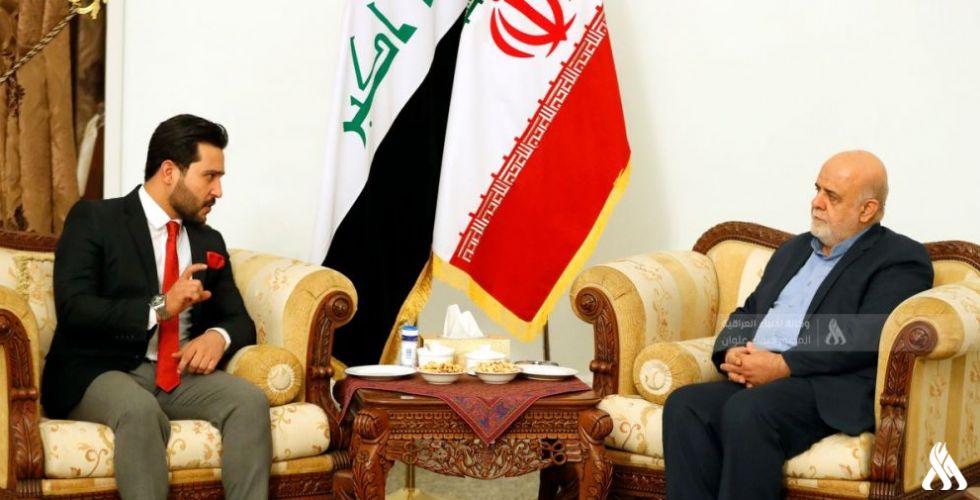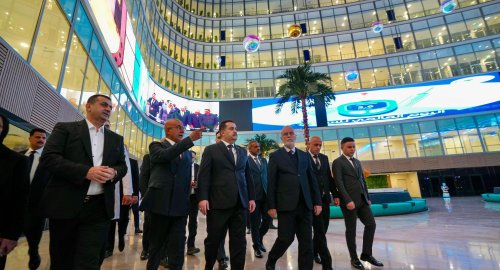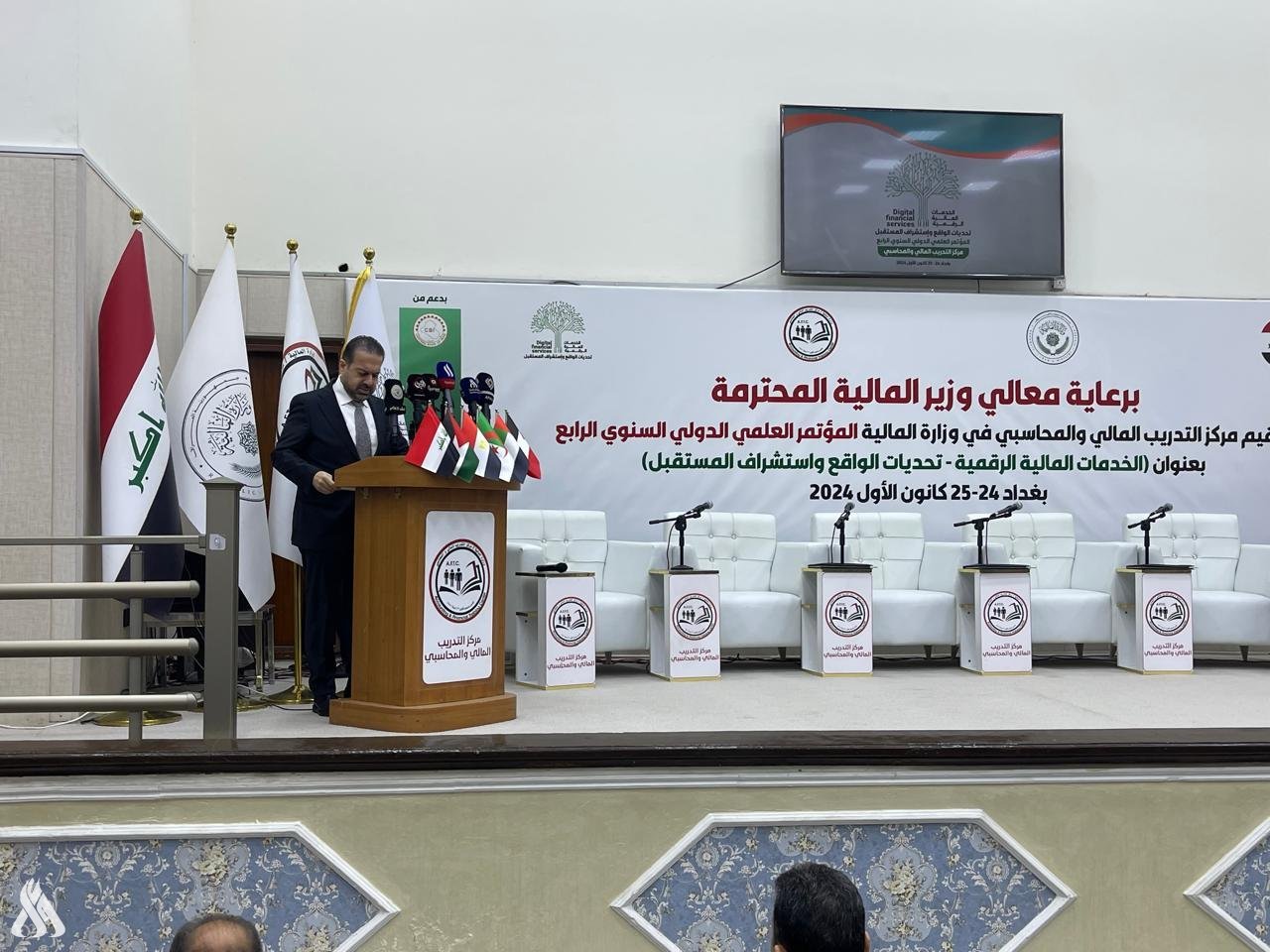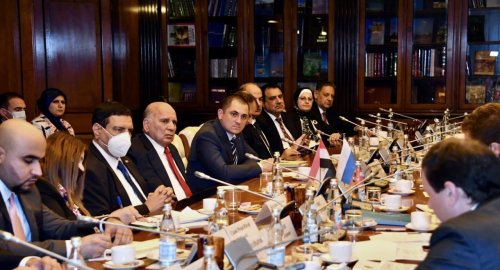
The return of Russian companies to work on a number of projects in Iraq

- 27-08-2021, 18:34
Baghdad - INA
Foreign Minister Fuad Hussein and Russian Deputy Prime Minister Yury Borisov agreed, on Friday, that Russian companies will return to work on a number of projects in Iraq.
The Ministry of Foreign Affairs stated, in a statement received by the Iraqi News Agency (INA), that "Foreign Minister Fuad Hussein and Deputy Prime Minister Yuri Borisov chaired the meetings of the Iraqi-Russian Joint Committee of the ninth session, which was held in Moscow on Thursday, August 26, 2021, to discuss Files of bilateral cooperation between Baghdad and Moscow, and ways to develop them to serve the two friendly countries.
The statement added, "The two sides discussed a number of files of joint cooperation in the economic field, developing agricultural technology, and facilitating granting entry visas to investors and diplomats from both countries. The Iraqis return to Russia to complete their studies."
He continued, "In another file, emphasis was placed on developing the tourism and cultural aspect, working to increase support, and facilitating flights in both countries, to activate trade relations.".
He pointed out that "energy files occupied an important aspect of the agenda, as Russian oil and gas companies play an important role in the oil sector and the reformulation of the oil industry, and some outstanding problems between the companies and the Ministry of Oil were diagnosed and addressed."
In the field of electrical energy, the statement noted, "It was discussed about the abandoned or lagging electrical projects that had been contracted with Russian companies in the past, and in this regard it was agreed to activate work on these projects and the return of Russian companies to work in them.".
The statement indicated that "the two sides signed the joint minutes of the meetings of the ninth session of the Iraqi-Russian joint committee, and it was agreed to develop and strengthen joint cooperation bonds in the various production and service sectors, and they also agreed to take all measures that would remove obstacles and impediments." It obstructs the trade and investment exchange between the two countries, as well as defining the mechanisms by which bilateral cooperation is activated.”
Research identifies the healthiest meal for the heart
- Investigations and reports
- 07:40
Iraq: Five-Year Plan to Attract Foreign Investments
- Economy
- 07:33
Iraq vs Saudi Arabia match kicks off, Arabian Gulf Cup 26
- Sport
- 24/12/28
Real Madrid becomes Arnold's new home
- Sport
- 24/12/28
Globe Soccer Awards 2024: all the nominees
- Sport
- 24/12/27

